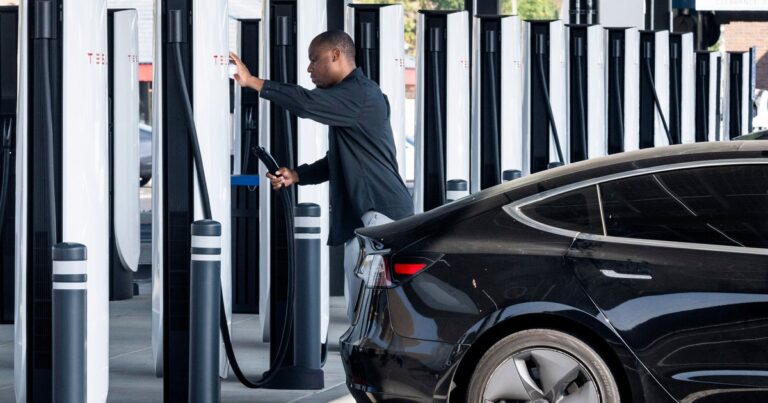The window to take advantage of clean energy credits is running out.
After three years, the sun is setting on a series of tax credits aimed at lowering the cost of buying electric vehicles, as well as installing solar panels, heat pumps and other clean energy technologies in your home.
That’s because, in July, Congress passed President Trump’s sweeping budget package, known as the One Big Beautiful Bill Act, which phases out the Biden-era clean energy subsidies earlier than originally outlined in the Inflation Reduction Act (IRA) under which they were established.
For example, the Residential Clean Energy Credit originally offered homeowners a 30% tax credit for installing rooftop solar, storage batteries and other qualifying clean energy systems through 2032. Under the new budget law, however, the deadline to install the technology has been moved up to Dec. 31, 2025.
Here’s a list from the U.S. Climate Alliance, a bipartisan coalition of governors, of additional tax credits that are still available under the IRA, along with the new deadline for eligibility.
New electric vehicle: Up to $7,500 for qualifying vehicles purchased before Sept. 30, 2025Used electric vehicle: Up to $4,000 for qualifying vehicles purchased before Sept. 30, 2025Heat pump for A/C, heater or water heater: Up to $2,000 for installations before Dec. 31, 2025. For those considering heat pumps, the Associated Press has a useful guide.Weatherization / insulation for your home: Up to $1,200 for installations made before Dec. 31, 2025Electrical panel: Up to $600 for installations before Dec. 31, 2025 Home energy audit, used to pinpoint where you’re losing energy and how to save: Up to $150 before Dec. 31, 2025 Rooftop Solar: 30% of qualifying costs for purchases made before Dec. 31, 2025Battery storage: 30% of qualifying costs for purchases made before Dec. 31, 2025Geothermal heating: 30% of qualifying costs for purchases made before Dec. 31, 2025 Electric vehicle charger: Up to $1,000 for chargers placed in service before June 30, 2026
Keep in mind, there are limits to the total amount of credits you can claim. For example, the Energy Efficient Home Improvement Credit caps homeowner tax credits on clean energy upgrades at $3,200 per year, according to the Internal Revenue Service. There are also caps on individual items, such as a $250 cap on exterior doors and a $500 cap on the cost of multiple doors installed.



